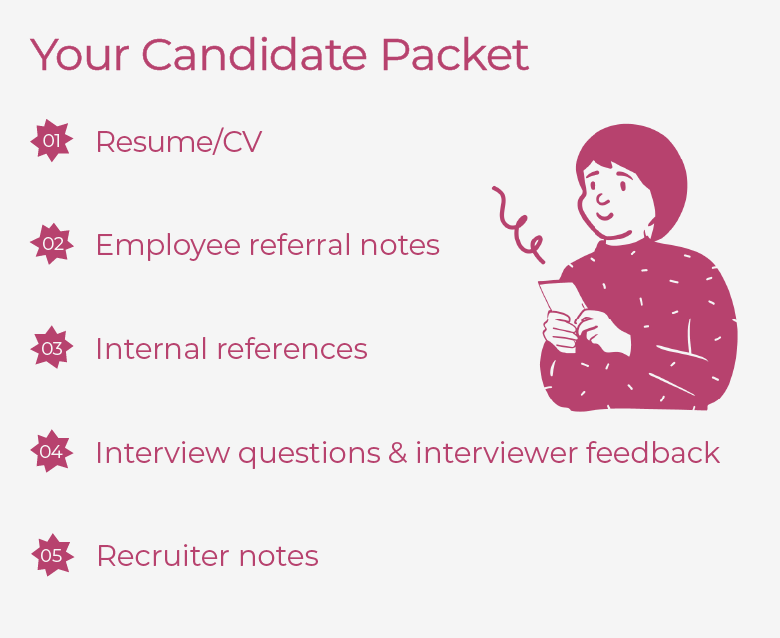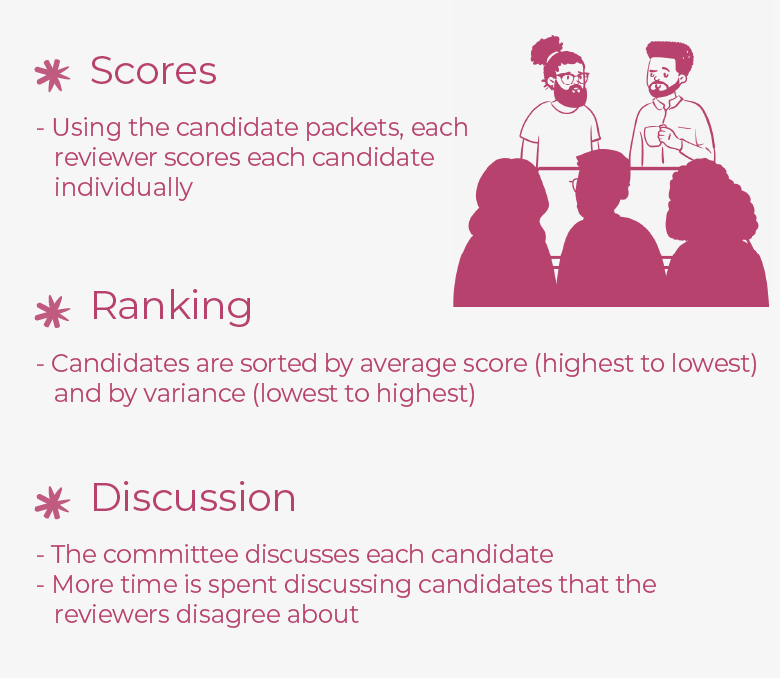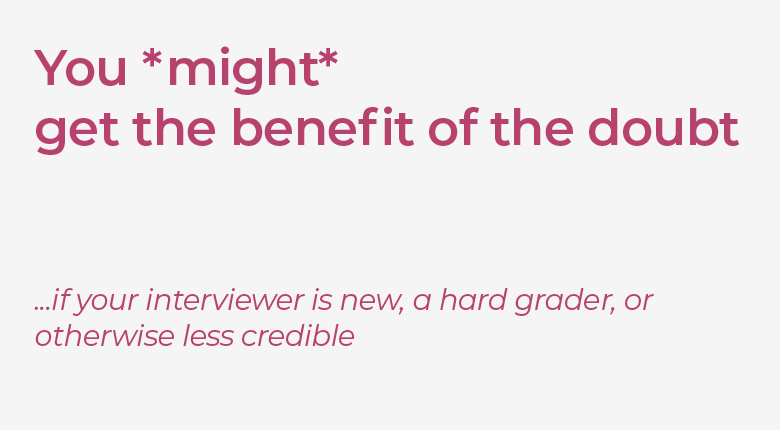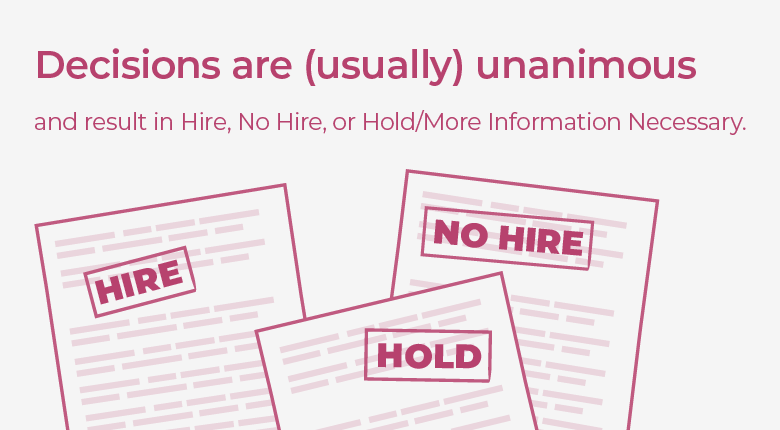Google's Hiring Committee — all the juicy details
Want the scoop? We got the answers to your most burning hiring questions.

We spoke to a Google recruiter recently in our office hours and we realized a lot of you have questions on how the hiring process works. This article is the first in a series that looks behind scenes at Google's hiring process.
How Interview Feedback Works

You will usually have 3 rounds of interviews (one screen, one video and one onsite loop) where you'll meet 5-6 Googlers. Each of them undergoes calibration before becoming an interviewer. After they speak with you, they will have to score you and write extremely detailed feedback that will be used by the Hiring Committee (HC) later on to help make a hiring decision.
Scores range from 1-4, with anything over a 3 being a "hire" recommendation. Your recruiter is responsible for following up with everyone to make sure this process moves quickly. Once she has everything, she will assemble your candidate packet. It will usually include the following:
- Your resume/CV
- Employee referral notes, if any
- Internal references, if any
- Interview questions and interviewer feedback
- Recruiter notes (including trends across interviewers or anything the recruiter feels is very important to call out)
This will go to the hiring committee to help them decide on your application. It's super important to note that this is ALL they will see- if you have competing offers or other compensation related requests, they will be addressed by another team after a decision has been made.
How Reviews Happen

The recruiter will submit your packet 1-2 days prior to the committee meeting - usually, around 10 candidates will be reviewed in a single meeting. Each member of the committee will read through the assigned candidates before the meeting and score them on their own, sometimes adding comments or highlighting what aspects of the interview feedback notes stood out.
The committee will meet several days later and scores will be collectively discussed at the meeting. Up until that point, every committee member has looked at you independently. The list is sorted by average score (highest to lowest) and variance (lowest to highest). From there, the committee will spend the most time discussing areas where the team had opposing views.
If you're incredibly lucky to get all 4's, your review will go fast. But for most people, feedback is mixed and the committee will have to examine it closely. There are 2 dimensions to consider here because hiring committees discuss not only the quality of the candidate but the quality of the feedback.

1. The interviewer's track record
Believe it or not, this is something Google takes this very seriously. There is literally a histogram and metrics on every interviewer's track record. If your low scores are coming from someone with a troubled record, someone who's known to be a hard interviewer, or someone who's junior- you might get a second chance.
Separately- the committee members will review each other's feedback as well.
2. Your file notes
This is where the notes on file come in- the team will review them carefully. Now when we say notes - these are almost direct transcript of your conversations, and will often include the solutions/code you presented. If there's any doubt that the notes are not good- you will get re-interviewed and a decision will be deferred.
Who's on this committee anyway?
Well, it depends. At Google, the committees include peers and managers of various levels and a cross-functional member who can assess partnership ability. There are specific hiring committees reviewing candidates within each function of the company, so Engineering committees review engineering hires, Sales committees review sales hires, and People Operations committees review HR hires. There are usually at least 5 people present - they've all been interviewers themselves before and have all been trained to evaluate based on the hiring attributes.
How a Decision is Made

Google doesn't believe in a majority vote- it's all in, or no hire. Here's how they describe it:
"Hiring decisions in Google's hiring committees are usually made by consensus (not majority vote). Research shows that unanimity enhances decision quality, because discussions tend to be more thorough. Voting produces one of three possible outcomes: Hire, No Hire, Hold/More Information Needed. In the last case, the recruiter will take the committee's feedback and gather more information (potentially scheduling additional interviews) so that at a future committee meeting they can reconsider with more data."
If you're lucky enough to get a yes - here's how you should respond to the job offer and negotiate your salary.
👉 Part 2 → How levels work at Google
The information provided herein is for general informational purposes only and is not intended to provide tax, legal, or investment advice and should not be construed as an offer to sell, a solicitation of an offer to buy, or a recommendation of any security by Candor, its employees and affiliates, or any third-party. Any expressions of opinion or assumptions are for illustrative purposes only and are subject to change without notice. Past performance is not a guarantee of future results and the opinions presented herein should not be viewed as an indicator of future performance. Investing in securities involves risk. Loss of principal is possible.
Third-party data has been obtained from sources we believe to be reliable; however, its accuracy, completeness, or reliability cannot be guaranteed. Candor does not receive compensation to promote or discuss any particular Company; however, Candor, its employees and affiliates, and/or its clients may hold positions in securities of the Companies discussed.
